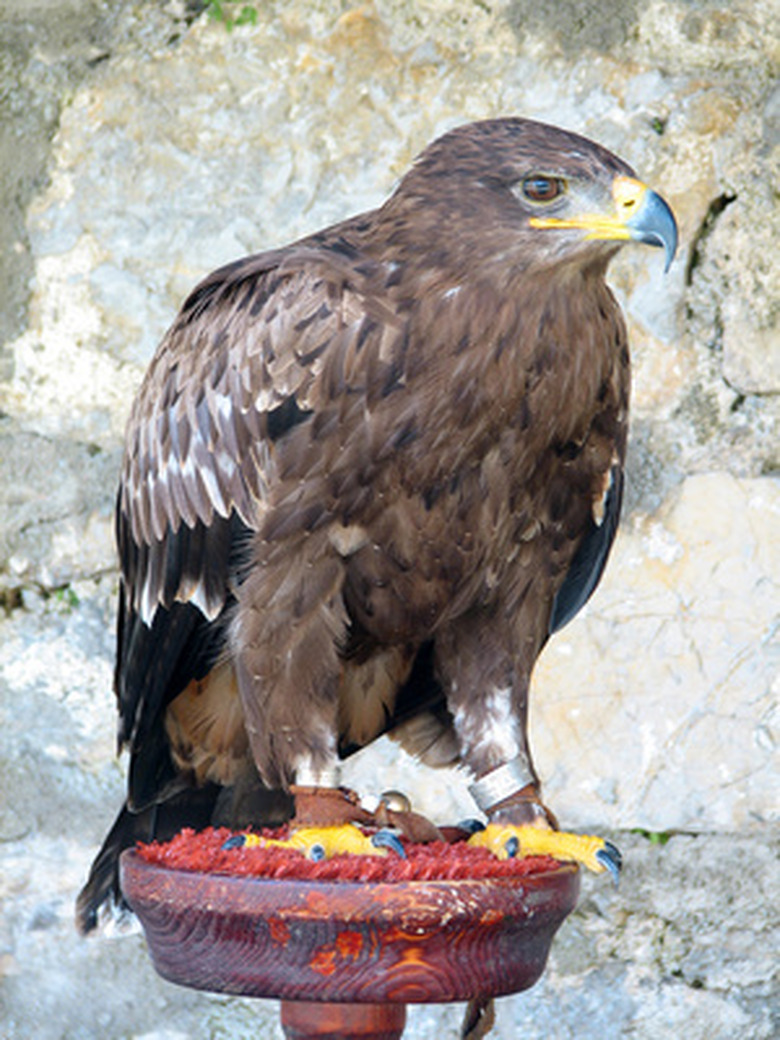Life Cycle Of The Golden Eagle
The golden eagle (Aquila chrysaetos) is one of the largest birds of prey in North America. They also occur in Europe, Asia and North Africa. They mainly eat small mammals but sometimes they will attack large mammals or other birds. Golden eagles often hunt in pairs. In the wild, they may live up to 32 years.
Breeding
Breeding
Golden eagles reach sexual maturity and are ready for breeding when they are four years of age or older. These birds are monogamous and mate until one partner dies. Afterward, the living partner will find a new mate.
Breeding and Nesting Season
Breeding and Nesting Season
Golden eagles breed between January and September, depending upon location.
Hatchlings
Hatchlings
The female golden eagle can lay as many as four eggs in a clutch but they lay two on average. The eggs hatch in approximately 45 days. Baby golden eagles emerge helpless and blind and are entirely dependent on their mother and father for food.
Behaviors
Behaviors
The eggs are laid three to four days apart and one chick is usually smaller than the other. Sometimes the older, stronger chick will kill the younger one if resources are limited.
Fledglings
Fledglings
The birds begin to fly when they are nine to 10 weeks old. The parents provide meat for the baby birds until they are around 14 weeks old or older.
Cite This Article
MLA
Elsworth, Stephany. "Life Cycle Of The Golden Eagle" sciencing.com, https://www.sciencing.com/life-cycle-golden-eagle-6749488/. 22 November 2019.
APA
Elsworth, Stephany. (2019, November 22). Life Cycle Of The Golden Eagle. sciencing.com. Retrieved from https://www.sciencing.com/life-cycle-golden-eagle-6749488/
Chicago
Elsworth, Stephany. Life Cycle Of The Golden Eagle last modified March 24, 2022. https://www.sciencing.com/life-cycle-golden-eagle-6749488/
